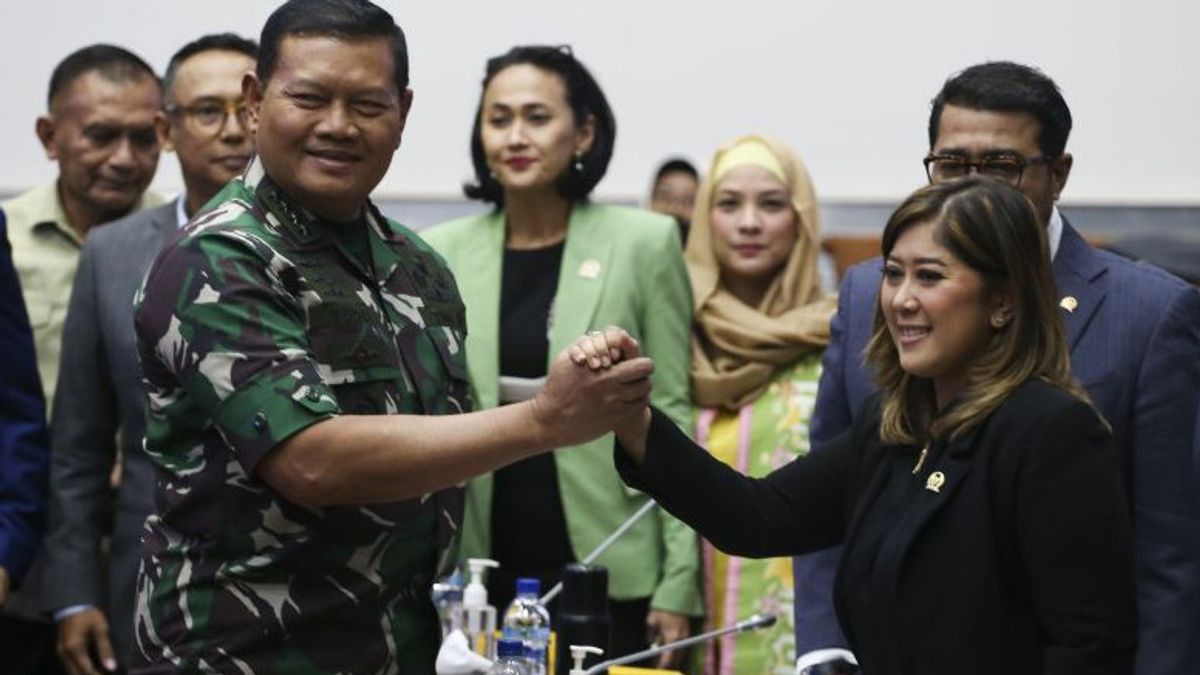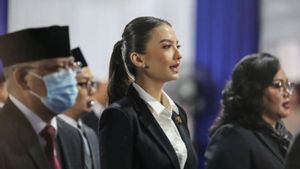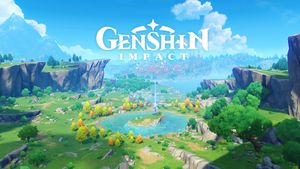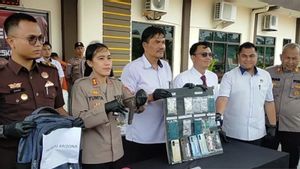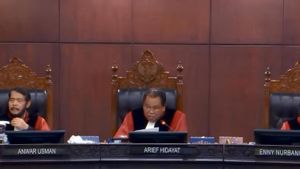JAKARTA The professionalism of the Indonesian National Army (TNI) as the main component and backbone of the country's defense system needs to be built. The main goal is of course to maintain the sovereignty and integrity of the territory of the Unitary State of the Republic of Indonesia (NKRI) and the safety of the entire nation facing threats and uncertainties of conditions in the future.
Dr. Suwarti Sari's statement in the book 'Indonesian Defense Strategy' is not excessive if you look at the geopolitical and geostrategic conditions of the Asia Pacific region, which tend to heat up at this time.
Look at how the United States has started to leave the Middle East in recent years and has shifted its focus as a World Police to the Asia Pacific region. In a speech to the Australian parliament in Canberra in 2011, President Barack Obama stated that the Asia Pacific region will play an important role in shaping the world's future.
"Based on the area, natural resources, and economic growth, the role of Asia Pacific countries globally will be increasingly important," Obama said.
Also, look at China's efforts to continue to challenge Uncle Sam's hegemony, especially in East Asian and Southeast Asian countries, both in trade and in the military.
The competition between the two is very clear. China, so far, managed to launch its foreign policy in the economic field to Southeast Asian countries to be able to record a trade value of 685 billion US dollars in 2020. Meanwhile, in the same period, America only reached 362 billion US dollars.
Whereas in the military. China has often heated the atmosphere by showing off its defense equipment strength. As last August a number of Chinese planes fired live missiles in the Taiwan Strait, in response to the arrival of the Speaker of the United States House of Representatives, Nancy Pelosi, to Taiwan.
America then retaliated by conducting an intercontinental ballistic missile test of Minuteman III a few days later. A number of parties assessed that the missile test was carried out for the sake of a show of force to stop China from launching military provocations near Taiwan even though the American military ultimately denied this.
Not to mention, the problem of claiming marine territory between several Southeast Asian countries including Indonesia and China in the South China Sea region.
All are real threats. That's why, said Suwarti Sari, building and strengthening the TNI as a defense actor whose main task is to protect all areas of sovereignty, including the wealth and welfare of its residents, is the most pressing issue.
The security political contest that has shifted has led the Indonesian government to immediately reposition the direction of Indonesia's more assertive, strategic foreign and defense policies in responding to changes in political constlations by building regional balance.
"Military instruments are a state force that can have a major influence on national defense policies and strategies," said Suwarti.
Building a professional and authoritative TNI in the eyes of the international community is not enough with joint training and fulfillment of defense equipment, but also a big strategy is needed.
In the current context, according to Suwarti, civilians must participate in formulating and drafting the legal basis and framework that regulates the role and position of the TNI in its duties as the front line of the nation to carry out defense missions.
Thus, the TNI is not only a soldier who focuses on stabilization and reconstruction capabilities, but also has outward looking defects, as is the policy direction set.
"The success of defense development cannot be separated from the political vision and vision of military transformation to build forces that are not only based on capabilities, but also threats that should be owned by civilians determining defense policies," said Suwarti.
The disagreement among civil leaders regarding several concepts of state defense policy is the cause of inconsistency and the delay in the emergence of necessary regulations. Problems arise when there is a discourse that democracy and the military cannot be united.
"This causes civilians to increasingly not understand the military's function for the sake of the existence of the state, as if the military is no longer needed in a democratic country, even though the democratic development of a country really needs a military in maintaining the democratization of a sovereign state," added Suwarti.
The election of Admiral Yudo Margono as TNI Commander gave new hope to make that happen. Indonesia must prepare a strategy in dealing with unexpected threats from outsiders who can maintain the sovereignty of the territory of the Republic of Indonesia.
"We hope that Admiral Yudo can carry out his duties systematically and can optimize all efforts to make Indonesia's defense and security even better," said Member of the Indonesian House of Representatives, Dave Akbarshah Fikarno, during the General Hearing Meeting of Commission I of the Indonesian House of Representatives in the context of a fit and proper test of TNI Admiral Yudo Margono on December 2, 2022.
Military and defense observer from the Indonesia Defense Strategy Forum (IDFS), Septiawan believes that Yudo Margono will be able to make the TNI more professional. It can be seen from the track record while leading the Navy.
He succeeded in bringing about bureaucratic changes with the realization of a "right shifting" organization. He was also able to improve the welfare and quality of soldiers. Not to mention, the construction of hundreds of main and supporting infrastructures.
"The enormous hope rests on sustainability after this, namely improving the TNI's posture and defense equipment which is of higher quality for the maritime glory of the Unitary State of the Republic of Indonesia," said Iwan as reported by VOI on November 29, 2022.
"Mr. Yudo deserves to serve as TNI Commander," added Iwan.
The English, Chinese, Japanese, Arabic, and French versions are automatically generated by the AI. So there may still be inaccuracies in translating, please always see Indonesian as our main language. (system supported by DigitalSiber.id)
